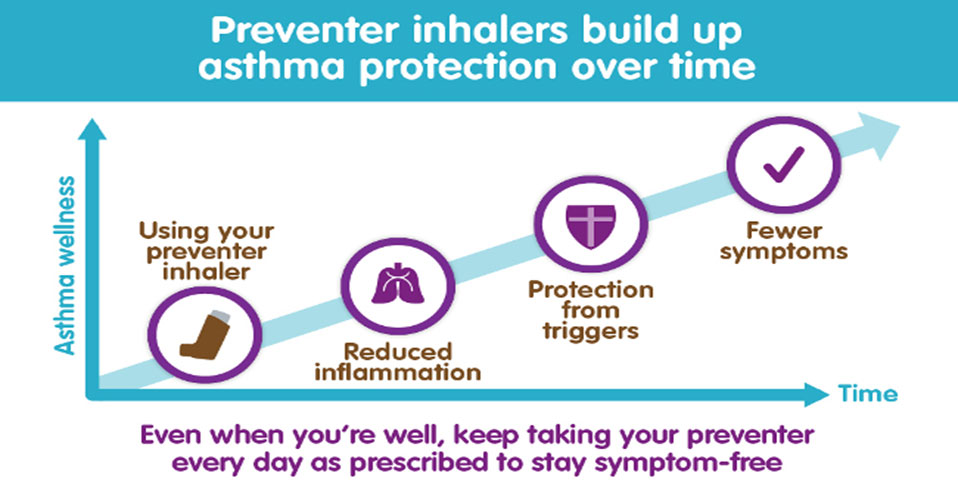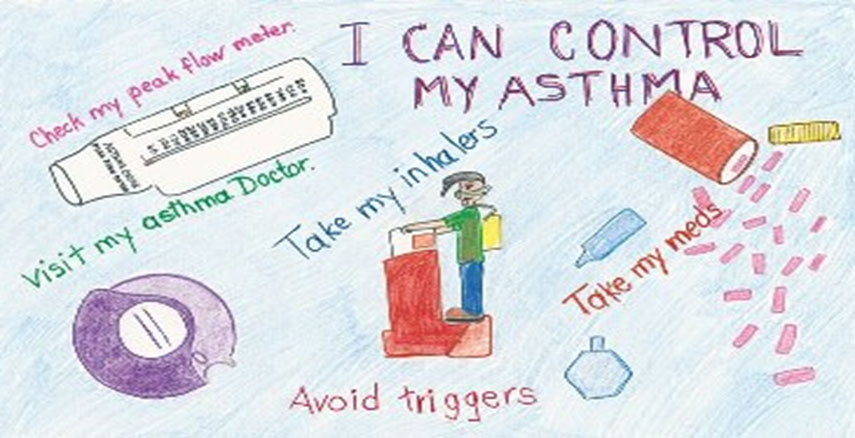Inhalers
The most common and effective way to take asthma medications is via the inhalers. With inhalers, the medicine goes straight into the lungs. Inhalers reduce the dose that should be taken with oral pills and reduce the side effects that could result from the medicine. Inhalers are very important in the management of asthma. Patients with asthma experience better outcomes with continued use of inhalers.

Inhalers are not only for patients with advanced asthma. They are also recommended for newly diagnosed patients of asthma because they are convenient and an effective method for administering asthma medicine to the site of action in the airways. This also reduces the side effects.
Inhalers deliver medicine either in a spray form (aerosol), or a dry powder form. If inhalers are not used the right way, the adequate amount of the medicine may not get to the lungs. Such a patient may present with poorly controlled asthma which may cause lots of discomforting symptoms (with the possibility of death), wastes the money spent to purchase the medicine; wastes the time spent at the health facility; involves parents, guardian or caregivers who may miss work. Hence, poor inhaler techniques may increase the cost of asthma management.
Relievers give rapid relief from symptoms. They are sometimes called rescue inhalers.
Controllers help control the swelling and inflammation in the airways thus, preventing asthma attacks. Controllers should be used every day, even when the asthma patient feels well..
If an asthma patient is not sure about his/her inhaler technique, a health professional can check it for him/her. Pharmacists play important roles in ensuring proper inhaler techniques, as they are readily accessible.
If an asthma patient finds it difficult to use his/her inhaler, he/she can discuss with the prescriber on the possibility of changing to a different device that is easier for use. If it appears the inhaler is not helping with the symptoms, the possibility of changing the medication can also be discussed.

